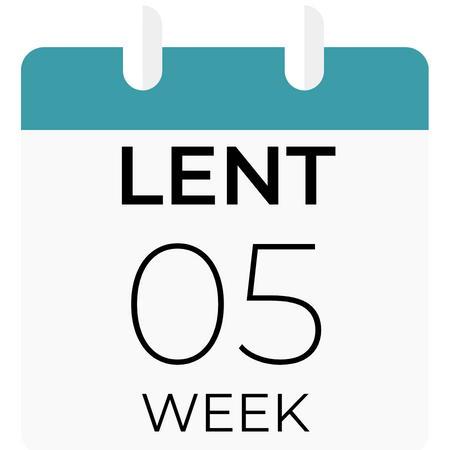Healing at the Pool of Bethesda
On the fifth Sunday of the Great Fast, the Church reads John 5:1-18, which describes the miracle of healing the paralytic man by the pool of Bethesda. This miracle is unique to the Gospel of John and was not mentioned in the other three Synoptic Gospels, Matthew, Mark, and Luke. However, it should not be confused with the miracle of healing the paralytic in Capernaum who was lowered through the roof by his friends for Jesus to heal him. (Matthew 9:1–8, Mark 2:1–12, and Luke 5:17–26).
In last week’s contemplation, the “Samaritan Woman” was the last of four Sunday’s reading encompassing the first phase of the Holy Lent’s seven weeks. This phase is themed “Features of the Struggle”. With today’s scripture, the church starts the 2nd phase of the Lent’s readings. The following three weeks focus on the “Fruits of the Struggle”; week 5 “Target of the Struggle: Faith”, week 6 “Identity in the Struggle: Baptism”, and week 7 “The Joy of Savior’s Salvation”.
The readings during this past week outline the characteristics that come with having a truly faithful spirit, befitting the theme of the week “Faith”. As in Monday’s reading, we learn that even when we have as little as five loaves and two fish, by believing that God will always provide, we can feed a multitude of people (Luke 9:12-17). Also in Friday’s reading, we are warned that it is faith in Him that we require if we wish to begin a worthy healing from sin, as the Lord said, “I told you that you would die in your sins; if you do not believe that I Am He, you will indeed die in your sins.” (John 8:24–NIV). Consequentially, today’s Scripture is the concluding reading for the Holy Lent fifth week.
In today’s reading we discuss the story of the man at the pool of Bethesda. This story teaches us about patience and never to lose hope in God, no matter how bad the situation is. This man was paralyzed for 38 years patiently waiting beside the pool of Bethesda hoping to be healed. Jesus approaches the man and asks him, “Do you want to be healed?” (John 5:6). As per St. John Chrysostom, Jesus singled out the man who had waited for thirty-eight years to teach us to have perseverance, and as a judgment against those who lose hope or patience in much lesser troubles lasting a far shorter time.
The man humbly explains his circumstance saying, “Sir, I have no one to put me into the pool when the water is stirred up, and while I am going, another steps down before me” (John 5:7).
This short interaction with our Lord displays how the paralytic was not bitter due to his ailment; rather, he was patiently waiting for healing and had faith that the day he would be healed would come. Our Lord changed this man’s sorrow to joy, He said to him “Get up, take up your bed, and walk” (John 5:8). St. Augustine explains, “Listen to the words of this paralytic and consider his great sorrow. Who is more deserving of pity than he who says these words? Have you seen a heart broken because of a long illness? Have you known how provoked by oppression he is? Yet, he did not blaspheme as most people do in their adversity. He did not curse his day, nor did he think the question was difficult to answer.”
After granting him complete healing, Christ revealed to him the reason for his illness. He also warned him of the cause that may lead to an illness worse than the first one; He told him, “See, you are well! Sin no more, that nothing worse may happen to you.”” (Jn. 5:14). As St. Cyril of Alexandria writes, “the sick man does as is bidden [asked] him, and by obedience and faith, he gains to himself the grace he longed for.”
Today’s scripture invites us to reflect deeper on themes of compassion, healing, conflict, divine authority, and spiritual renewal. It also challenges us to reflect on our own response to Jesus’ teachings and miracles and to consider the depth of our faith and understanding of God’s purposes.
May this Fast be spiritually fruitful for us all, prepare us to face all our struggles and sufferings like the paralytic—free from bitterness, full of patience, and having steadfast faith in knowing that God has a plan to alleviate us from our sufferings.
Amen.
Sources:
- Bible, English Standard Version
- Study Bible, NABRE
- Bible, New International Version (NIV)
- Catena Bible
- Commentaries on the Gospel of St. John by Fr. Tadros Malaty
- Commentaries on the Gospel of John (Arabic), Fr. Antonious Fikry
- Ancient Christian Commentary on Scripture, New Testament

